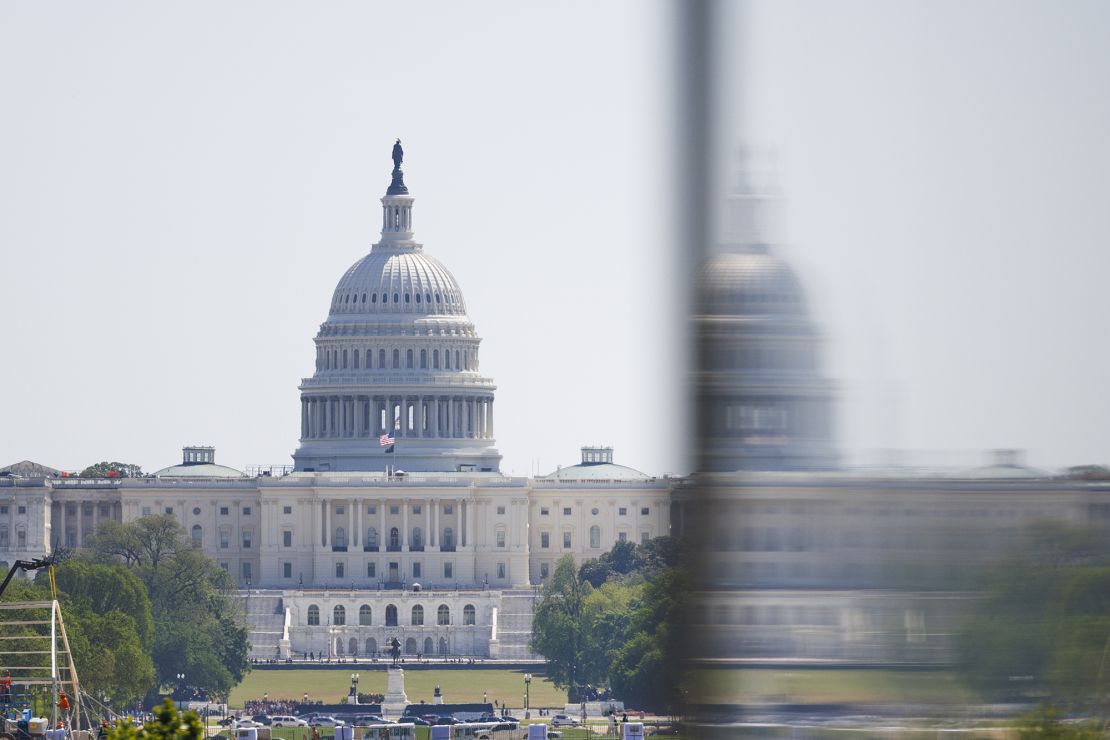New York
CNN
—
President Donald Trump has promised that the “big, beautiful bill” passed by the Senate and being considered by the House of Representatives will be one of the most successful pieces of legislation in American history.
Of course, the ultimate beauty of this sweeping legislation is very much in the eye of the beholder.
The bill could end up boosting some workers and industries, while others may be left worse off.
Corporate America
Big business groups, including the US Chamber of Commerce and Business Roundtable, applauded the Senate’s passage of the bill on Tuesday.
Corporations are betting they will benefit from the legislation making permanent the tax breaks in the 2017 Tax Cuts and Jobs Act.
The package would restore a tax break from the 2017 tax package that allowed businesses to fully write off the cost of equipment in the first year it was purchased. The incentive has been phasing out since 2023.
Also, the legislation would once again allow businesses to write off the cost of research and development in the year it was incurred. The TCJA required that companies deduct those expenses over five years, starting in 2022.
Manufacturers
Manufacturers are especially happy that the bill would make significant changes to how the US tax code treats the construction of new manufacturing facilities.
If the bill passes, businesses would be allowed to fully and immediately deduct the cost of building new manufacturing facilities. This temporary provision is retroactive to January 19, 2025 and continues for construction that begins before January 1, 2029.
And in a bid to incentivize more chipmaking in America, the legislation would enhance tax credits for semiconductor firms building manufacturing facilities in the United States.
Small businesses and partnerships
The National Federation of Independent Business, the leading small business lobbying group, praised the legislation for making permanent a special deduction for the owners of certain pass-through entities who pay businesses taxes on their individual tax returns.
That deduction, which applies to small businesses and partnerships formed by lawyers, doctors and investors, would get increased in the House version of the bill from 20% to 23%. The Senate bill kept it at 20%.
High-income Americans
The net income for the top 20% of earners would increase by nearly $13,000 per year, after taxes and transfers, according to an analysis of a near-final version of the Senate bill by Penn Wharton Budget Model.
That amounts to a 3% average increase in income for those households.
For the top 0.1% of earners, the average annual income gain would amount to more than $290,000, according to Penn Wharton.
Americans living in high-tax states should also benefit from the Senate version of the legislation because it temporarily increases limits on deductions for state and local taxes for householders making up to $500,000 annually to $40,000 per year for five years.
However, millionaires who lose their jobs will not be able to collect unemployment benefits, according to a recent provision added to the Senate bill.
Workers who receive tips and overtime
Certain workers will receive an extra tax break through 2028.
Employees who work in jobs that traditionally receive tips could deduct up to $25,000 in tip income from their federal income taxes, while workers who receive overtime could deduct up to $12,500 of that extra pay.
However, highly compensated individuals, who make more than $160,000 in 2025, would not qualify.

Low-income Americans
Many people at the lowest end of the income ladder would be worse off because the package would enact historic cuts to the nation’s safety net program, particularly Medicaid and food stamps.
Among the many changes to these programs would be the addition of federally mandated work requirements to Medicaid for the first time in its 60-year history and the expansion of the work mandate in the Supplemental Nutrition Assistance Program, or SNAP, the formal name for food stamps. Parents of children ages 14 and up are among those who would have to work, volunteer, take classes or participate in job training to keep their benefits.
Millions of low-income Americans are expected to lose their benefits because of the work requirements and the bill’s other measures affecting Medicaid and food stamps. Notably, few of those dropped from Medicaid coverage would have access to job-based health insurance, according to a Congressional Budget Office report about the House version of the package.
The health provisions won’t only hit low-income Americans. The Senate is also tightening verification requirements for the Affordable Care Act’s federal premium subsidies, which could also leave some middle-income Americans uninsured.
All told, the bill could result in more than 10 million more people being uninsured in 2034, according to a CNN analysis of the bill and CBO forecasts.
Hospitals
Hospitals are not happy with the health care provisions of the bill, which would reduce the support they receive from states to care for Medicaid enrollees and leave them with more uncompensated care costs for treating uninsured patients.
“The real-life consequences of these nearly $1 trillion in Medicaid cuts – the largest ever proposed by Congress – will result in irreparable harm to our health care system, reducing access to care for all Americans and severely undermining the ability of hospitals and health systems to care for our most vulnerable patients,” said Rick Pollack, CEO of the American Hospital Association.
The association said it is “deeply disappointed” with the bill, even though it contains a $50 billion fund to help rural hospitals contend with the Medicaid cuts, which hospitals say is not nearly enough to make up for the shortfall.
Clean energy and EVs
The Senate removed a last-minute excise tax on wind and solar that experts warned would have been a “killer” for the clean energy industry.
However, the Senate bill still strips tax incentives for wind, solar and other renewable energy projects by 2027 and gives developers stringent requirements to claim them.
The American Clean Power Association slammed the legislation as a “step backward for American energy policy” that will eliminate jobs and raise electric bills.
Electric vehicle makers could also be left worse off because the GOP bill ends EV tax credits of up to $7,500 at the end of September. Previously those tax credits were scheduled to last through 2032, providing a powerful incentive for car buyers.
Deficit hawks
The Senate version of the package would increase the deficit by about $3.4 trillion over the next decade, according to CBO.
Adding trillions to the debt risks lifting already elevated interest rates. That in turn will make it more expensive for Americans to finance the purchase of a car or a home and for businesses to borrow money to grow.
Not only that, but higher rates would force the federal government to devote even greater resources to finance its own mountain of debt.
The CBO expects US federal government interest costs to surpass $1 trillion per year.
US spending on interest has already more than tripled since 2017, surpassing what the federal government’s entire defense budget.






